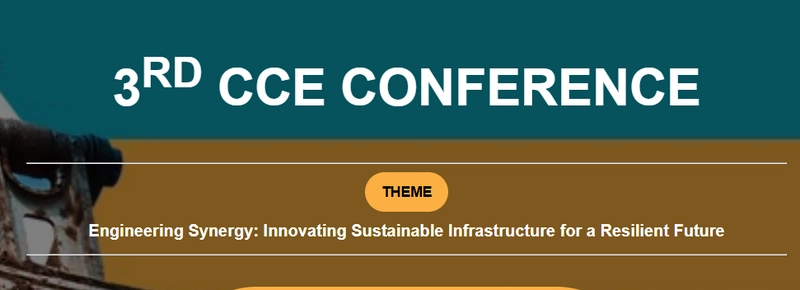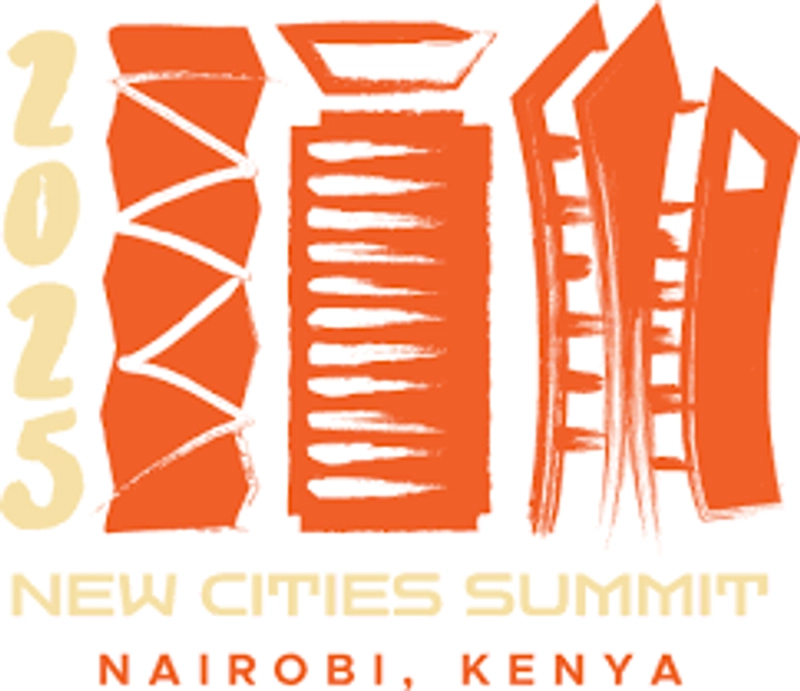Civil Engineering Eventos en Nairobi


CCE Conference
CCE Conference Nairobi: Shaping the Future of Building and Construction in Kenya
The CCE Conference, organized by FutureOf, is rapidly becoming one of the most important events in the building and construction industry in East Africa. Hosted in Nairobi, Kenya, this engaging gathering offers a vibrant platform for professionals, companies, and stakeholders to convene, exchange knowledge, and explore the latest trends and innovations transforming the sector. For anyone involved in building and construction, attending this conference means gaining vital insights into the evolving challenges and opportunities shaping the industry.
A Premier Event for Collaboration and Knowledge Exchange in Construction
The CCE Conference stands out for its focus on fostering meaningful collaboration among the many players in the construction market. From contractors and architects to material suppliers and technology providers, the event brings together a diverse spectrum of participants committed to advancing the industry.
The conference’s agenda is designed to:
Provide informative sessions that highlight current and future trends
Showcase cutting-edge technologies and innovative construction methods
Facilitate networking opportunities to build strategic partnerships
Encourage open discussions on challenges affecting the sector
This comprehensive approach ensures that attendees leave well-equipped to navigate and contribute to the rapidly changing construction landscape in Kenya and the broader region.
Exploring Innovations and Trends Shaping the Building Industry
One of the core benefits of the CCE Conference lies in its spotlight on innovation. The building and construction sector is undergoing significant transformation worldwide, with new materials, digital tools, and sustainable practices revolutionizing how projects are planned and executed. Nairobi’s CCE Conference offers a window into these advancements, with presentations and panels that cover:
Sustainable building techniques to minimize environmental impact
Digital technologies enhancing project management and efficiency
New materials improving durability and cost-effectiveness
Regulatory updates and policy trends influencing construction standards
Through these sessions, attendees gain a nuanced understanding of how to implement these innovations to boost productivity and quality in their own projects.
Networking Opportunities That Drive Industry Growth
Beyond its educational content, the CCE Conference excels as a networking hub. It is designed to connect attendees with industry leaders, innovators, and potential collaborators. Whether it’s through roundtable discussions, informal meetups, or structured networking sessions, the event encourages participants to build relationships that can translate into business growth and shared success.
Key networking features include:
Exclusive meet-and-greet events with sector experts
Interactive workshops fostering teamwork and idea exchange
Exhibitor zones presenting products and services from leading suppliers
Panel discussions facilitating dialogue between stakeholders
These interactions are vital for keeping the construction industry agile and responsive to market demands.
Why Attend the CCE Conference in Nairobi?
The construction industry in Kenya is poised for significant growth, driven by urbanization, infrastructure development, and increasing demand for modern buildings. For professionals and companies wanting to stay ahead, the CCE Conference is a must-attend event. The knowledge, connections, and inspiration gained here can directly influence the success of current and future projects.
Attending the conference offers:
Insight into emerging industry trends and best practices
Access to the latest construction technologies and materials
Opportunities to forge partnerships with local and international players
A platform to voice challenges and collaboratively seek solutions
CCE Conference as a Catalyst for Construction Excellence in Kenya
The CCE Conference represents more than just an event—it’s a movement aimed at propelling Kenya’s building and construction sector into a new era of innovation and collaboration. By bringing together thought leaders, industry professionals, and technology pioneers, the conference empowers attendees to embrace change, adopt new methodologies, and contribute to sustainable growth. For anyone invested in the future of construction, this conference in Nairobi offers an invaluable opportunity to learn, network, and lead.


Mega Clima Kenya
Mega Clima Kenya is far more than just an exhibition—it's a vibrant meeting point where the HVAC + R (Heating, Ventilation, Air Conditioning, and Refrigeration) industry comes alive. This event is designed to foster personal interactions that go beyond the reach of digital or phone conversations. It serves as an essential platform where engineers, contractors, and professionals from the HVAC + R sector can meet face-to-face, explore new opportunities, and discuss the latest innovations driving the industry forward.
The exhibition is not only about showcasing the newest technologies in HVAC + R but also about building bridges between local and global players in the sector. As Africa's demand for advanced climate control solutions continues to rise—driven by rapid urbanization, evolving infrastructure, and the increasing impact of climate change—Mega Clima Kenya provides a unique space for industry leaders to connect and collaborate. Attendees have access to cutting-edge products, from energy-efficient systems to state-of-the-art refrigeration technologies, that are shaping the future of the industry.
One of the standout features of Mega Clima Kenya is the opportunity for genuine, face-to-face meetings. In an age of digital communication, nothing can replace the value of in-person interactions where new partnerships are forged, business opportunities are explored, and real-time solutions to industry challenges are discussed. These personal connections are invaluable for building trust and establishing long-term business relationships that can drive growth and innovation in the HVAC + R sector.
The event also offers an excellent opportunity for both local and international players to explore the latest trends in energy efficiency and sustainability. In a region where the demand for smarter, more eco-friendly solutions is growing, Mega Clima Kenya acts as a platform for exchanging ideas on how the industry can meet environmental and economic challenges head-on. Whether it's discussing the latest in energy-saving technologies or how to tackle cooling solutions in an increasingly hot and urbanized climate, the exhibition covers all facets of HVAC + R innovation.
For contractors, engineers, and professionals, the exhibition presents an unmatched chance to stay ahead of the curve. With the industry's best suppliers and manufacturers showcasing their products and services, Mega Clima Kenya is where participants can discover the tools and technologies that will define the future of climate control. The event provides deep insights into the evolving needs of the African market, helping businesses adapt and thrive in a rapidly changing environment.
Mega Clima Kenya is a catalyst for growth, collaboration, and technological advancement in the HVAC + R sector. It's a place where ideas are exchanged, partnerships are solidified, and the future of climate control is shaped. Whether you’re looking to expand your business footprint, discover the latest HVAC innovations, or connect with key industry players, this exhibition provides the ideal environment for anyone in the HVAC + R field to take their business to the next level.


New Cities Summit
Reimagining Urban Futures: The New Cities Summit Sets the Stage in Nairobi
In a world undergoing rapid urban transformation, few events are as timely and influential as the New Cities Summit. Hosted by the Charter Cities Institute, this landmark summit is poised to gather the brightest minds shaping the next generation of urban life. Scheduled for June in Nairobi, Kenya, the summit promises to be a catalytic force in the redefinition of cities—not only across Africa, but globally.
The New Cities Summit is more than a conference; it is a high-level forum where ideas become initiatives and ambitions turn into action. With the theme “Transforming Ideas into Action, Across Africa & Beyond,” the summit offers an immersive experience for those committed to the creation, expansion, and revitalization of urban environments.
Why the New Cities Movement Matters
Cities have always been centers of opportunity, innovation, and human advancement. But today, urbanization presents both immense challenges and unprecedented possibilities. Across Africa, the rapid growth of urban populations is outpacing infrastructure development, leading to housing shortages, traffic congestion, and economic inefficiencies.
New cities—planned urban developments built from the ground up—offer a compelling alternative. These cities are not merely responses to demographic pressure; they are designed as models for sustainable, inclusive, and technologically advanced living. The New Cities Summit is at the forefront of this movement, promoting dialogue, partnerships, and real-world solutions.
Nairobi as the Perfect Host City
Nairobi is an ideal setting for the New Cities Summit. As one of Africa’s fastest-growing metropolises and a tech innovation hub often dubbed the “Silicon Savannah,” Nairobi embodies the entrepreneurial energy and developmental momentum the summit seeks to harness. Its unique blend of legacy infrastructure and forward-looking urban projects mirrors the summit's vision of transition and transformation.
Hosting over 400 delegates, including:
Urban planners and architects
Policy makers and government leaders
Real estate developers and infrastructure experts
Social entrepreneurs and technology innovators
Investors and global visionaries
the summit aims to spark meaningful conversations and collaborations that transcend borders and sectors.
Key Features of the New Cities Summit
Participants in the New Cities Summit can expect a diverse and dynamic program built around the most pressing issues in urban development. The event will be structured around the following key elements:
1. Summit Plenary Sessions
Engage with world-renowned thought leaders as they share keynote addresses, fireside chats, and big-picture insights on the future of cities.
2. Breakout Panels and Roundtables
Delve into targeted themes such as:
Financing models for new cities
Governance in charter cities
Smart city technology and data use
Affordable housing and inclusive design
3. Startup Pitches and Innovation Showcases
Discover the latest tools, technologies, and business models redefining urban living. Entrepreneurs and startup founders will present scalable solutions to urban problems.
4. Curated Networking Sessions
These one-on-one or small-group interactions are designed to catalyze partnerships and foster high-impact dialogue.
Turning Ideas Into Action: The Summit’s Driving Philosophy
At its heart, the New Cities Summit is driven by one core mission: to move beyond discussion into execution. Attendees won't just hear about theoretical frameworks; they’ll explore real-world case studies of cities that are already changing the game.
From Kigali’s digital governance to Nigeria’s Eko Atlantic project and Kenya’s Konza Technopolis, the summit highlights the tangible impact of well-conceived urban planning backed by public-private collaboration.
The summit empowers stakeholders to:
Learn from success stories across continents
Engage with new funding models for city-scale infrastructure
Contribute to policy recommendations and design frameworks
Build interdisciplinary teams for long-term projects
Who Should Attend the New Cities Summit?
Whether you are an investor looking for the next frontier, a policymaker shaping urban futures, or a builder looking for partners in sustainable construction, the New Cities Summit offers something of value.
Ideal attendees include:
Government officials and development agencies
Real estate and infrastructure investors
NGOs and civil society organizations
Academics and urban researchers
City leaders and municipal planners
This convergence of sectors and skill sets ensures that solutions proposed at the summit are not only visionary but implementable.
The Impact of New Cities on Africa’s Urban Future
Africa is expected to account for over 50% of global population growth by 2050, and much of that growth will be urban. Without planned responses, the result could be sprawling informal settlements with limited access to clean water, healthcare, or transportation. But with strategic investment and smart urban design, new cities can become engines of:
Economic diversification
Social cohesion
Environmental sustainability
Technological progress
The New Cities Summit presents a rare opportunity to get ahead of this curve, engaging in a conversation that is as urgent as it is inspiring.
A Summit of Purpose and Possibility
As the Charter Cities Institute prepares to host the New Cities Summit in Nairobi, it sends a clear message: the future of urban life is being built now, and Africa is not just part of that story—it is leading it. For those serious about urban innovation, this summit is not to be missed.
From transformative keynote sessions to hands-on working groups and cross-continental case studies, the New Cities Summit offers the tools, knowledge, and networks necessary to drive real change.


Sustainable Construction in Africa Conference
Building Africa’s Future: Sustainable Construction in Africa Conference Unites Academia and Industry
Africa stands at a unique crossroad. Rapid urbanization, a growing population, and the urgent need for housing and infrastructure are driving unprecedented demand across the continent. At the same time, the global climate crisis requires that all development be sustainable, responsible, and forward-looking. Addressing these two realities head-on, the Sustainable Construction in Africa Conference emerges as a vital platform for architects, engineers, planners, policymakers, and investors to come together and chart a sustainable path forward.
This landmark event goes beyond theory—it focuses on actionable collaboration, innovation in construction materials and design, and the creation of affordable, scalable solutions that suit Africa’s unique socio-economic and environmental context.
Bridging Academia and Industry for Scalable Impact
One of the defining strengths of the Sustainable Construction in Africa Conference is its commitment to bridging the gap between academic research and real-world industry practice. Universities and research institutions bring critical insights into new materials, building techniques, and urban design models. Meanwhile, contractors, developers, government agencies, and investors bring the know-how and resources needed to implement these ideas at scale.
This synergy creates an ecosystem where ideas can be tested, refined, and scaled—ensuring that solutions are not just technically sound but also economically viable and culturally appropriate.
Key Objectives of the Conference:
Promote collaboration between academic institutions and the construction industry
Explore affordable and sustainable building solutions tailored to African contexts
Develop policy frameworks that support long-term, environmentally conscious urban growth
Showcase successful projects and share implementation strategies
Encourage knowledge transfer and regional capacity building
An Inclusive Forum for Diverse Voices
The event welcomes a broad spectrum of stakeholders—recognizing that sustainable construction in Africa requires input from all corners of society. It’s not only about building better structures but also building consensus around development goals.
Participants Include:
Architects and Urban Planners
Civil and Structural Engineers
Local and National Governments
Ministries of Housing, Infrastructure, and Environment
Private Sector Developers and Construction Firms
NGOs and International Development Agencies
Academic Researchers and University Leaders
Investors and Financial Institutions
This inclusive format helps ensure that every voice is heard—from grassroots organizations working on rural housing to national ministries planning new smart cities.
Spotlight on Innovation: Materials, Methods, and Models
A key theme of the conference is the exploration of innovative construction practices that support long-term sustainability and economic resilience. The event features keynote speeches, technical panels, live demonstrations, and exhibitions where attendees can engage directly with new ideas and tools.
Topics of Focus:
Sustainable Building Materials:
Earth-based bricks
Recycled and upcycled materials
Locally sourced resources
Climate-resilient materials for extreme weather conditions
Energy-Efficient Designs:
Passive cooling and natural ventilation
Solar integration in residential and commercial projects
Low-carbon building strategies
Affordable Housing Models:
Modular construction and prefabrication
Low-cost financing mechanisms
Public-private partnerships for housing delivery
Urban Resilience and Infrastructure:
Water and waste management systems
Transportation planning for growing cities
Green infrastructure for climate adaptation
Learning Through Participation: Formats that Foster Dialogue
The Sustainable Construction in Africa Conference is designed to spark dialogue, not just deliver lectures. Its format emphasizes engagement and problem-solving, offering ample opportunity for attendees to ask questions, share ideas, and form partnerships.
Conference Program Highlights:
Keynote Addresses: Delivered by thought leaders and policymakers
Interactive Panel Discussions: Covering regional challenges and opportunities
Hands-On Workshops: Focused on sustainable design, material testing, and policy drafting
Startup Showcases and Exhibitions: Featuring green construction solutions
Networking Sessions: For collaboration across sectors and borders
This combination of formats helps ensure that knowledge exchange is dynamic, cross-sectoral, and actionable.
Africa’s Opportunity: Sustainability as a Development Strategy
Unlike other regions already locked into outdated infrastructure, many African countries have a unique opportunity to leapfrog into a sustainable construction future. With fewer legacy systems to replace, it becomes more feasible to implement new approaches from the ground up—whether in smart city planning, renewable energy integration, or green building certifications.
Moreover, sustainability is not a luxury—it’s a development strategy. Construction that reduces energy use, maximizes local materials, and prioritizes community resilience translates directly into long-term economic savings, healthier populations, and more vibrant cities.
Benefits of Sustainable Construction for Africa:
Lower construction and maintenance costs over time
Enhanced health outcomes through better living conditions
Reduced environmental degradation and resource depletion
Strengthened local economies through the use of domestic materials
Greater alignment with global climate commitments and funding opportunities
Building Partnerships That Last
One of the most important outcomes of the Sustainable Construction in Africa Conference is the formation of long-lasting partnerships. These relationships span disciplines, industries, and borders, and are essential for scaling successful models beyond individual pilot projects.
Attendees leave the conference not only with new insights but also with concrete contacts and action plans—enabling them to return to their communities and implement what they’ve learned.
A Blueprint for a Greener Tomorrow
The Sustainable Construction in Africa Conference is more than just a gathering—it’s a call to action. It’s a place where bold ideas meet real-world experience, where planners and builders come together to imagine and construct a better, more sustainable future.
As Africa continues to grow, the decisions made today will shape the continent for generations to come. This conference ensures those decisions are grounded in sustainability, equity, and resilience.
By fostering collaboration between academia and industry, exploring innovative building methods, and strengthening policy frameworks, the event lays the foundation for a continent that builds not just bigger—but better.